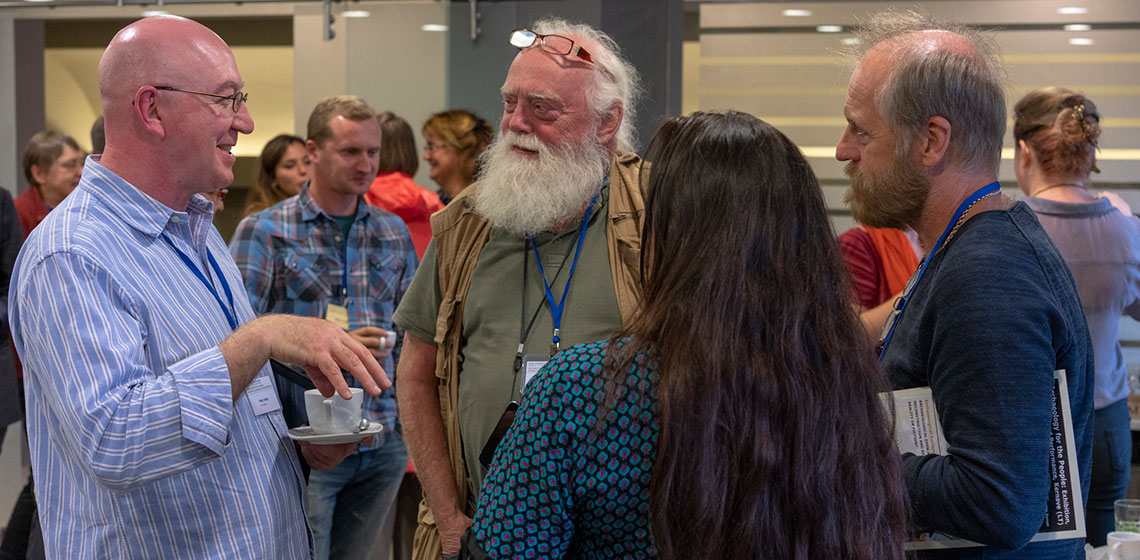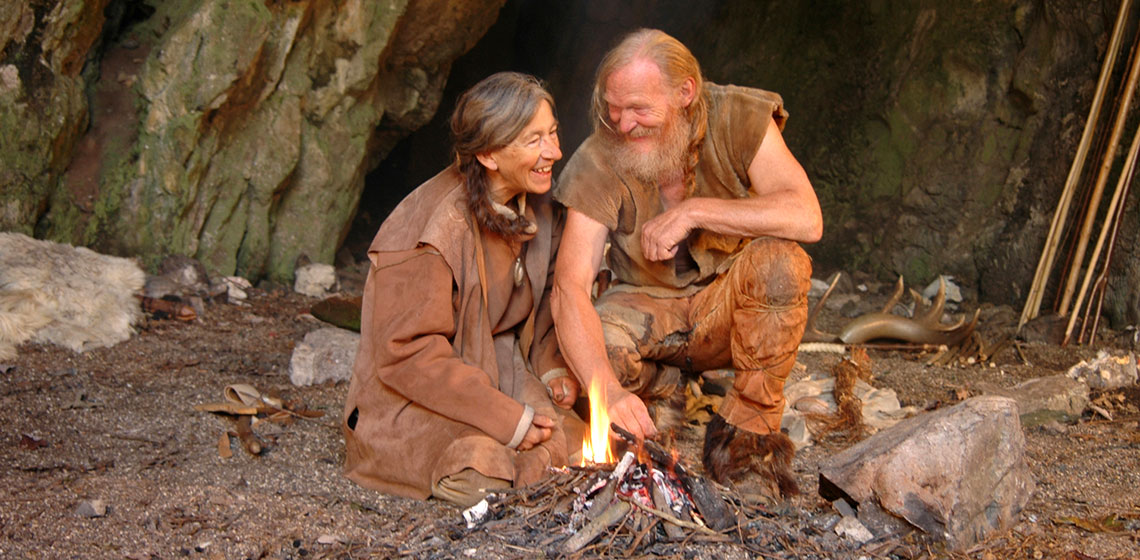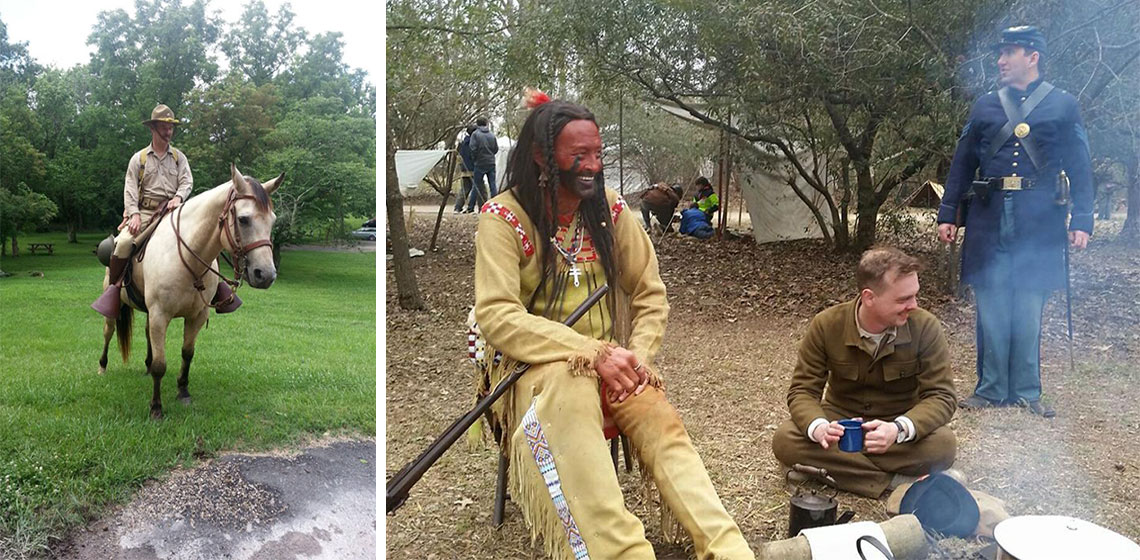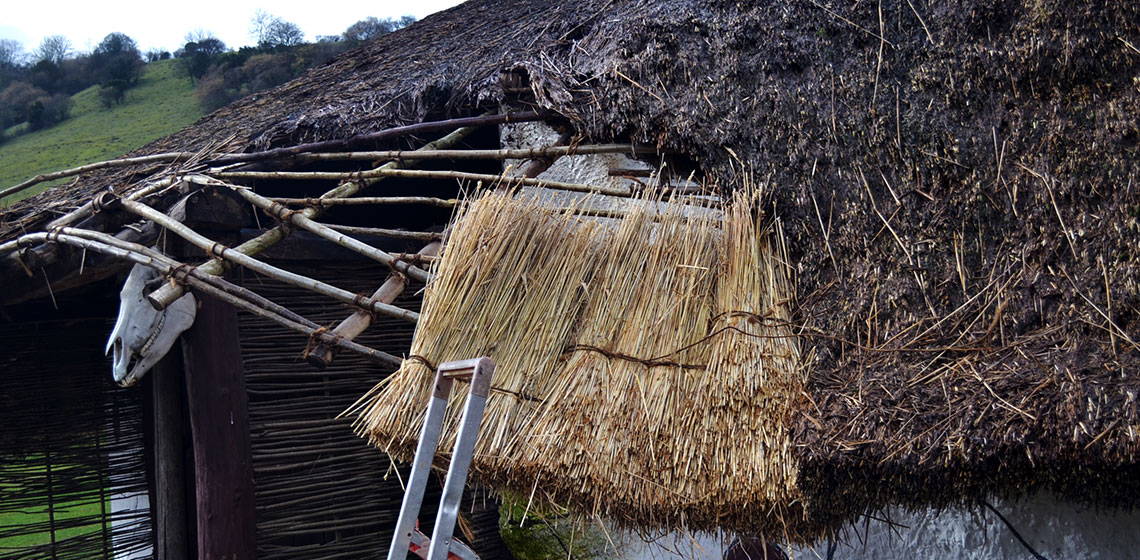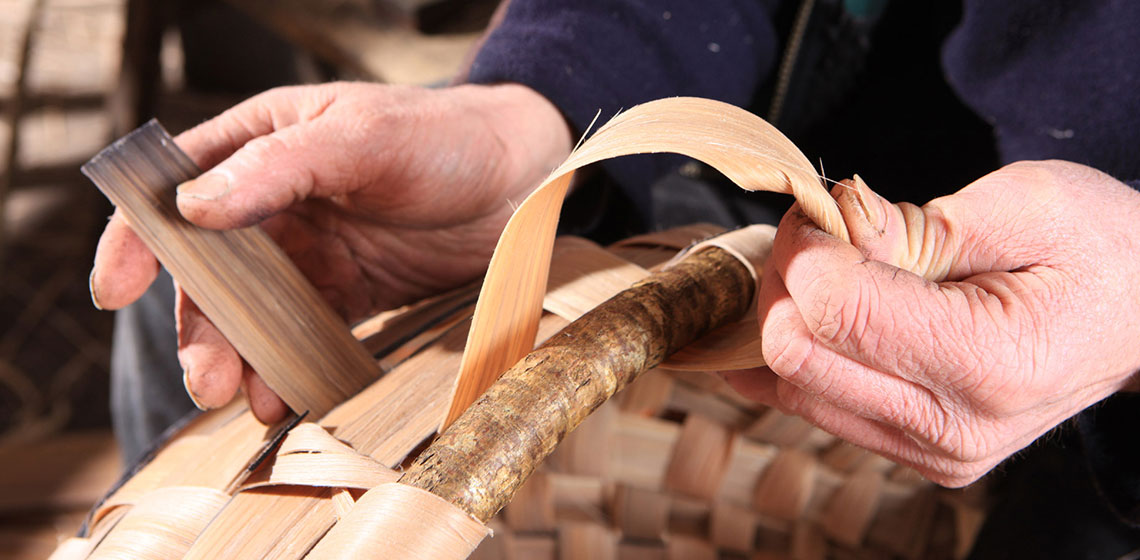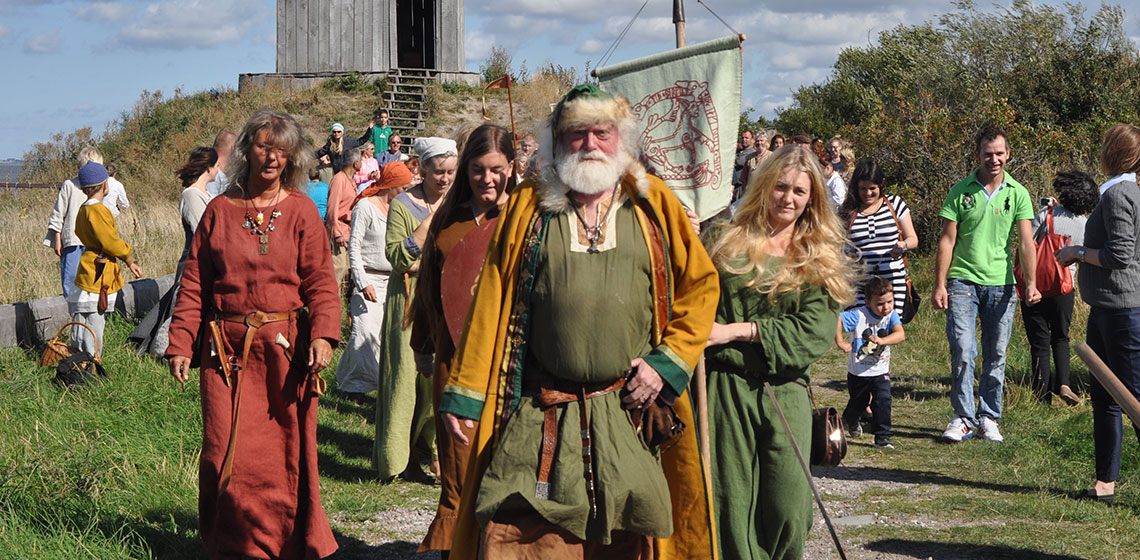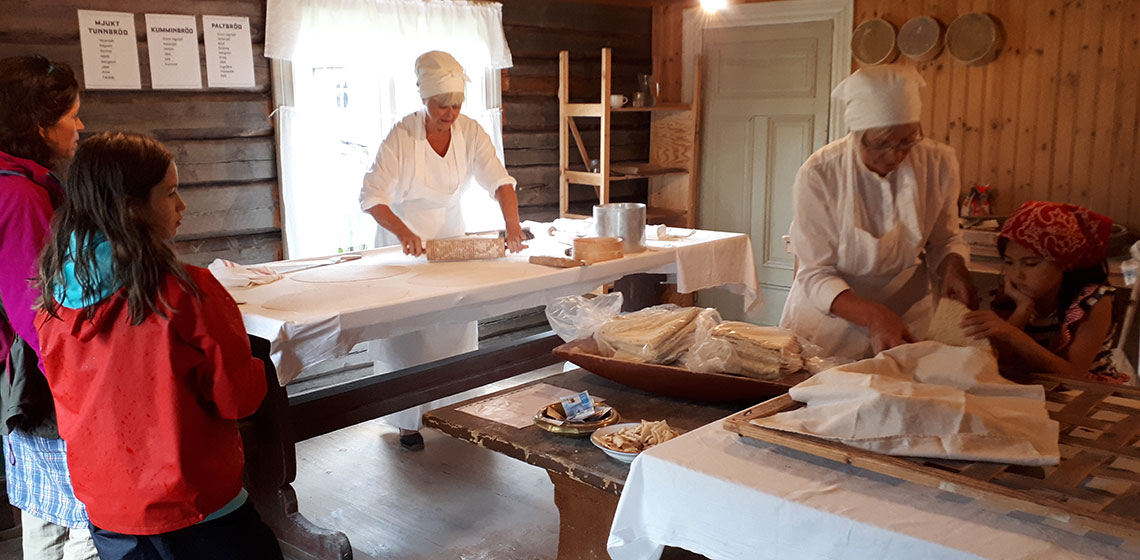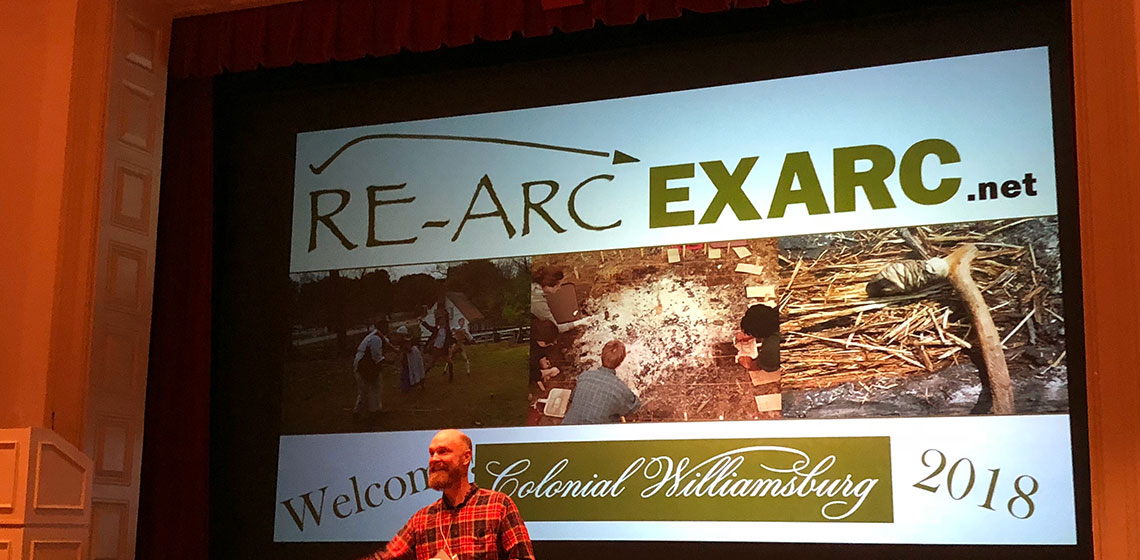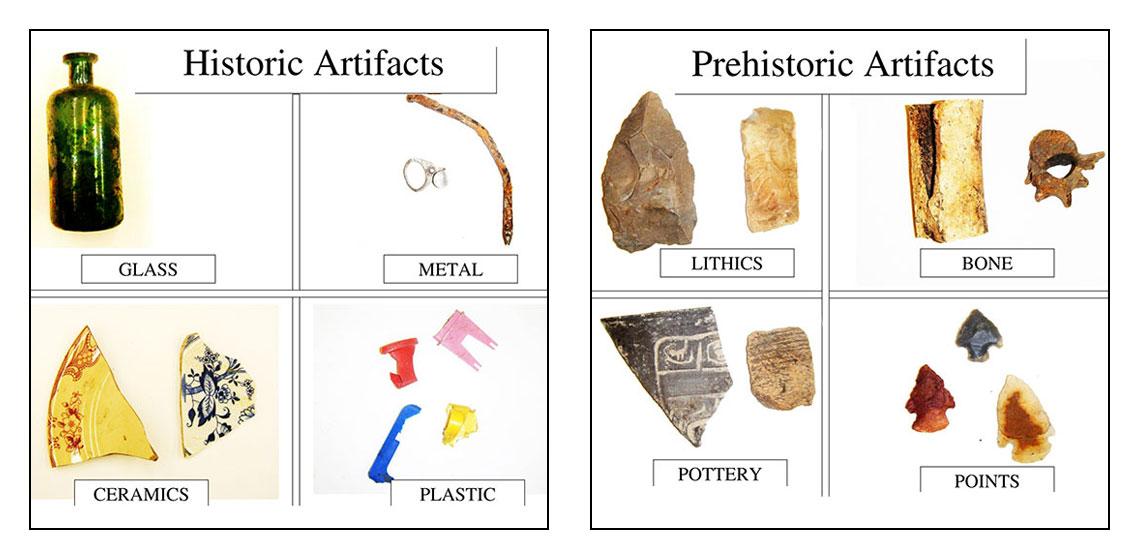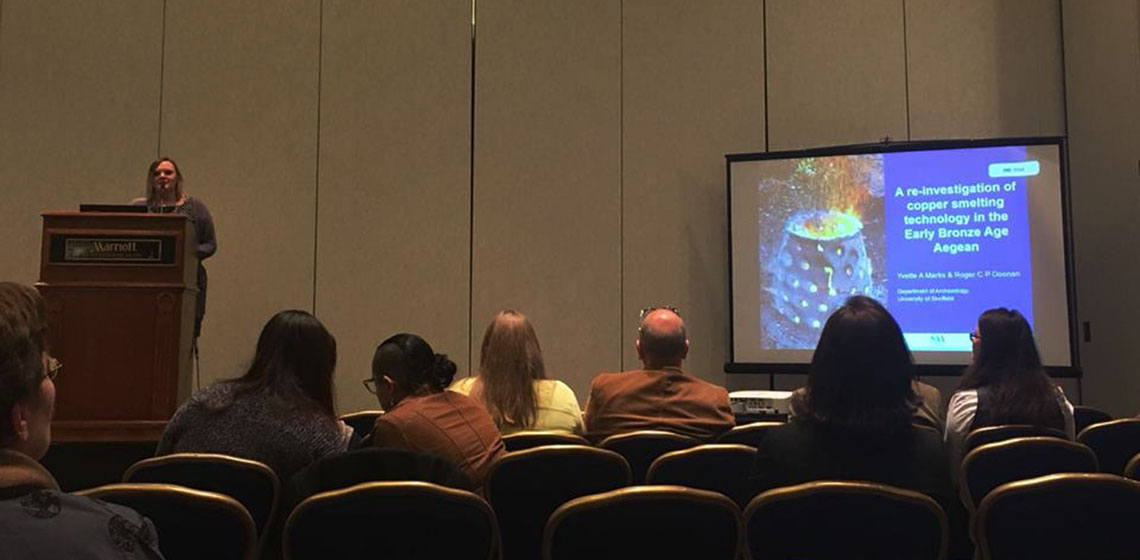Newest Era
Conference Review: Once upon a Time... in Kernave
Publication Date
And so EXARC met again, this time in Lithuania, in Kernavė – an early medieval capital of the Grand Duchy of Lithuania. This picturesque village was the location for the conference “Archaeology for the People” which EXARC co-organised with the State Cultural Reserve of Kernavė and with IMTAL-Europe. The Reserve of Kernavė is an old member of EXARC. IMTAL-Europe is a long-time cooperation partner of EXARC...
Interview: John W Lord
Publication Date
In the UK, skilled flintknappers are very few, and if you want to learn flintknapping there is no one more respected than John William Lord. John has been teaching, demonstrating and sharing his knowledge for many, many years. Numerous times over the past twelve years, I have had the pleasure of working with John and his late wife Val as they set up camp here at Kilmartin Museum...
How to Run a Reenactment - Introduction to Reenactments and Reenactors, Part 1
Publication Date
Reenactments, meaning special events that use outside costumed interpreters, are a great way for sites to engage visitors and host memorable programs that build a following. Planning and executing a reenactment can be a daunting challenge for a site that has never hosted one. Like any special event, you have to make sure you have the staffing, resources, and logistics to handle the event...
The Effect of Climate Change in Experimental Archaeology
Publication Date
When you are planning your experiment how many of you think of the climate and whether it matches the period that your experiment is based in? Depending on the type of experiment there are many factors that may influence the results. You need to consider parameters such as; humidity, ambient temperature...
The UK Heritage Crafts Association
Publication Date
The Heritage Crafts Association is the UK advocacy body for traditional heritage crafts. Working in partnership with Government and key agencies, it provides a focus for craftspeople, groups, societies and guilds, as well as individuals who care about the loss of traditional crafts skills, and works towards a healthy and sustainable framework for the future...
Interview: Björn Jakobsen
Publication Date
Björn M Buttler Jakobsen has recently turned 70. He has worked presenting history and archaeology since the 1970s. His background is as an engineer, film maker, entrepreneur and he can also call himself marine archaeologist...
Event Review: NEMO Training Course ‘Regional Development through Heritage in Sweden’ in Östersund, Sweden
Publication Date
Annemarie Pothaar was selected to attend the one day NEMO training course on 29th June 2018 in Östersund Sweden. This was facilitated by the Jamtli Foundation and the Nordic Centre of Heritage Learning and Creativity (NCK). The meeting was attended by six colleagues coming from different countries, including the Netherlands and Azerbaijan...
Conference Review: Reconstructive & Experimental Archaeology Conference REARC 2018
Publication Date
REARC Conferences
***The 8th annual Reconstructive and Experimental Archaeology Conference hosted by EXARC drew speakers and participants from many parts of the world. The REARC conference was once again hosted by Colonial Williamsburg in Virginia, from October 18-20th. Friday was reserved for the presentation of papers...
***The 8th annual Reconstructive and Experimental Archaeology Conference hosted by EXARC drew speakers and participants from many parts of the world. The REARC conference was once again hosted by Colonial Williamsburg in Virginia, from October 18-20th. Friday was reserved for the presentation of papers...
Public Access to (Pre-)History Through Archaeology
Publication Date
Public history, like experimental archaeology, is relatively new as an accepted academic program; the two fields are intrinsically linked and should, ideally, use interdisciplinary collaboration to better educate and involve the public in their work. This paper presents case studies in education and interpretation by the author, as well as exemplary programs from various sites in the United States and Europe...
Conference Review: SAA General Session, Experimental Archaeology 2018
Publication Date
The Society for American Archaeology is, perhaps with the exception of the World Archaeology Congress, the largest meeting of archaeologists in the world. The 2018 annual meeting was held in Washington DC and was attended by approximately 5000 archaeologists. Delegates were primarily from the States, but there was also a good international showing with attendees coming from around the world...

